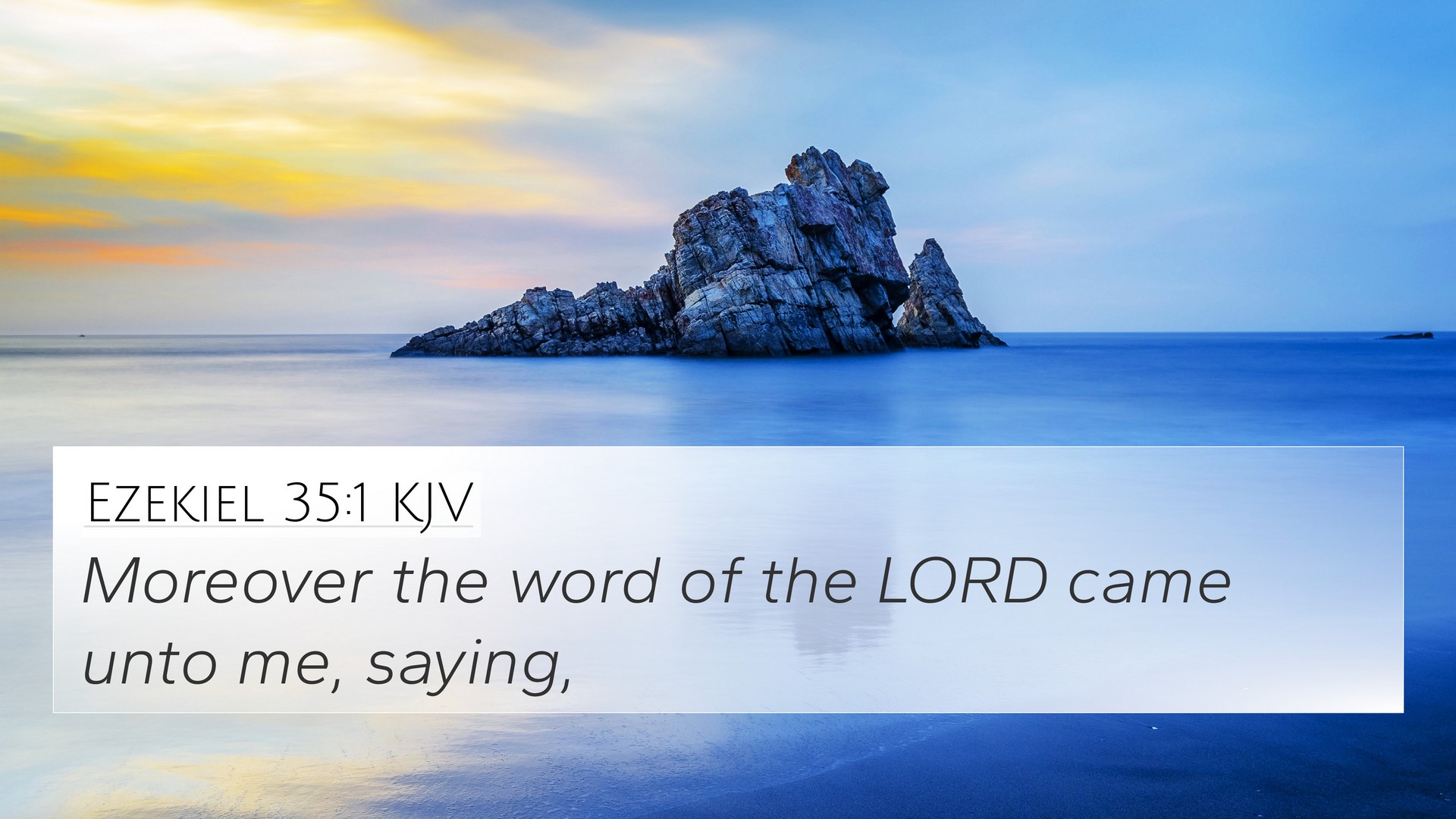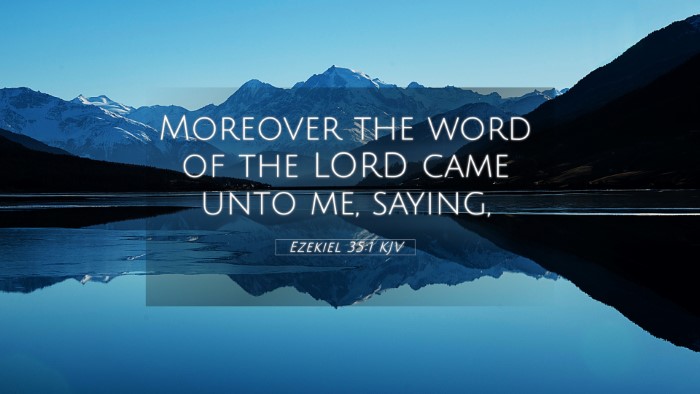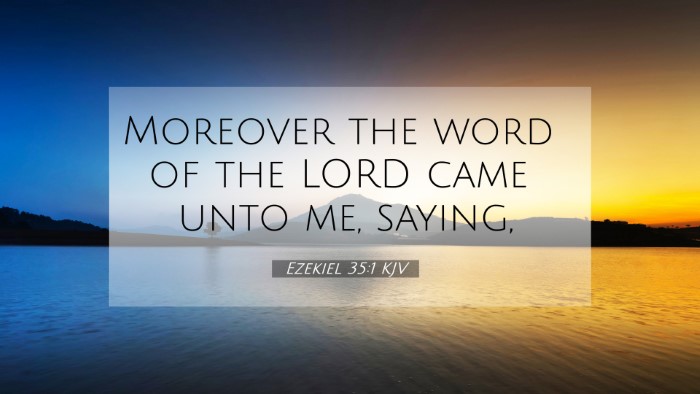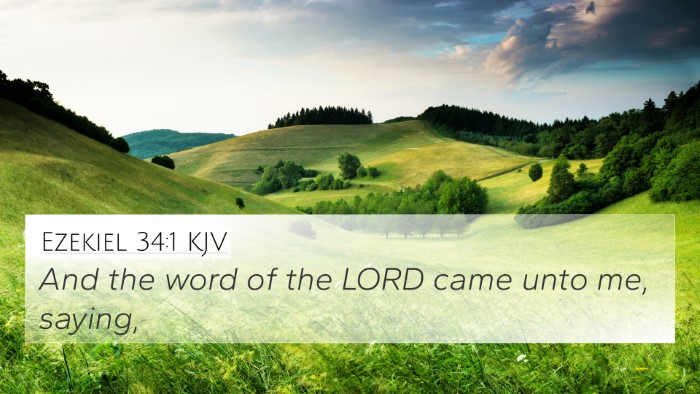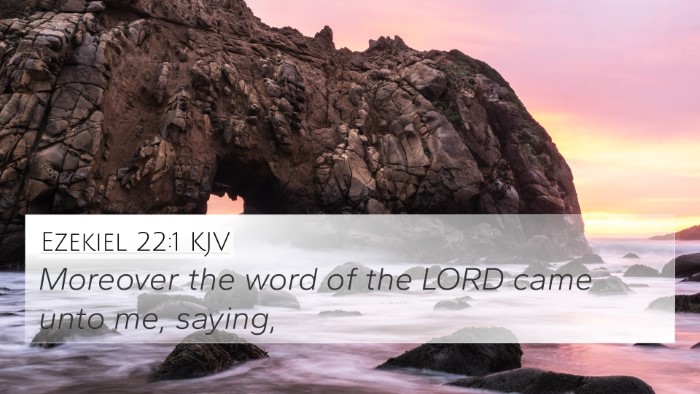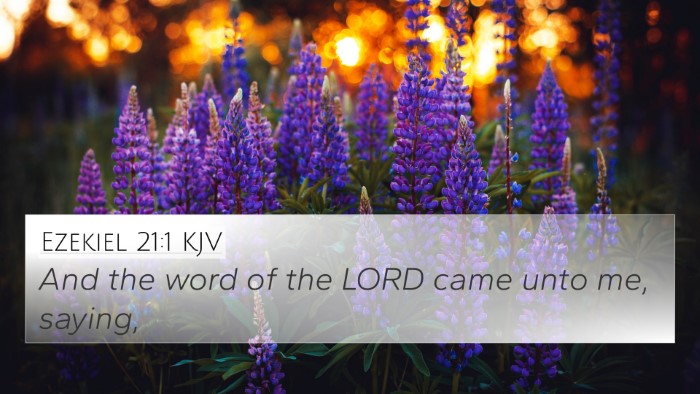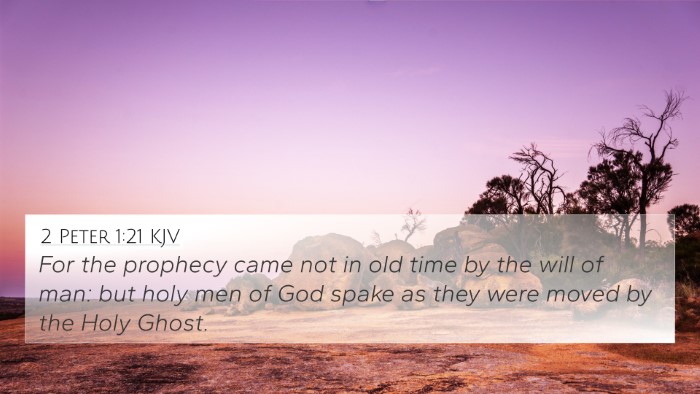Ezekiel 35:1 - Summary and Interpretation
Ezekiel 35:1 states: "Moreover the word of the LORD came unto me, saying," which introduces a significant prophetic declaration concerning Mount Seir, representing Edom, a nation often seen as an enemy of Israel.
Contextual Background
The Book of Ezekiel contains messages of judgment and restoration, primarily directed at Judah and Jerusalem during the Babylonian exile. Ezekiel addresses the nations surrounding Israel, particularly those who have oppressed or rejoiced in Israel's downfall.
Meaning and Insights
This verse sets the stage for God's judgment against Edom. The phrase "the word of the LORD" emphasizes divine authority and revelation, indicating that what follows is not merely prophetic opinion but God's definitive pronouncement.
- Matthew Henry's Commentary: Highlights the idea that God's word is powerful and effective, asserting that His judgments will ultimately prevail against those who oppress His people.
- Albert Barnes' Notes: Notes that Edom’s actions have drawn God’s wrath and their pride and hostility towards Israel will lead to their own destruction.
- Adam Clarke's Commentary: Points out that this ultimately serves as a warning to all nations that stand against God's chosen people. God’s judgment is certain, and His justice is impartial.
Cross-References
A thorough reading of Scripture shows that Ezekiel 35:1 is related to several other verses, illustrating the interconnectedness of Biblical texts:
- Obadiah 1:10-15: This passage discusses the judgment against Edom for their violence against Jacob.
- Isaiah 34:5-8: Here, God's vengeance against Edom is described in stark imagery of destruction.
- Jeremiah 49:7-22: This section addresses the fate of Edom, making a clear connection to the themes in Ezekiel.
- Lamentations 4:21: This verse expresses a feeling of revenge and punishment against Edom for their actions towards Jerusalem.
- Romans 11:25-27: Discusses the broader theological implications for nations opposing God's people, offering a New Testament perspective.
- Psalm 137:7: A recollection of Edom's role in the destruction of Jerusalem, emphasizing their culpability.
- Amos 1:11-12: Another instance of God’s wrath against Edom for their transgressions.
- Ezekiel 25:12-14: This portion directly addresses God's judgment on Edom for their actions against Israel.
- Malachi 1:2-4: Highlights the perpetual enmity between Israel and Edom, underscoring Edom’s fate.
- 2 Kings 8:20-22: References the historical context of Edom's rebellion against Judah.
Thematic Connections
The themes within Ezekiel 35:1 connect to major Biblical doctrines, including divine justice, God's protection over Israel, and the ultimate triumph of God's people.
This prophecy intertwines with concepts of divine sovereignty and inter-Biblical dialogue. It reflects on the consequences of nations that rise against God’s chosen, reinforcing the notion that God's purposes will be fulfilled despite human opposition.
Applications for Study
Understanding Ezekiel 35:1 provides insights that extend beyond historical context; it prompts theological reflection regarding God's justice and mercy:
- Tools for Bible Cross-Referencing: Utilizing a Bible concordance can greatly aid in identifying connections between this verse and others.
- Bible Cross-Reference Guide: Exploring guides can deepen understanding of the overarching narrative of God's dealings with nations.
- Cross-Referencing Bible Study: An engaged study can reveal the layers of meaning across prophetic literature.
- How to Use Bible Cross-References: Learning effective methods for cross-referencing can illuminate theological themes present in texts.
- Bible Reference Resources: Utilizing comprehensive materials can enrich one’s study and understanding of the Scriptures.
Conclusion
Ezekiel 35:1 serves as a declaration of God's sovereignty and a vindication of Israel's suffering at the hands of nations like Edom. Its implications resound throughout both the Old and New Testaments, offering valuable lessons on divine justice and the fate of those who oppose God’s will.
As we study this passage and its connections to the broader Biblical narrative, we are reminded of the importance of context, thematic cohesion, and cross-referencing in understanding the richness of Scripture.
